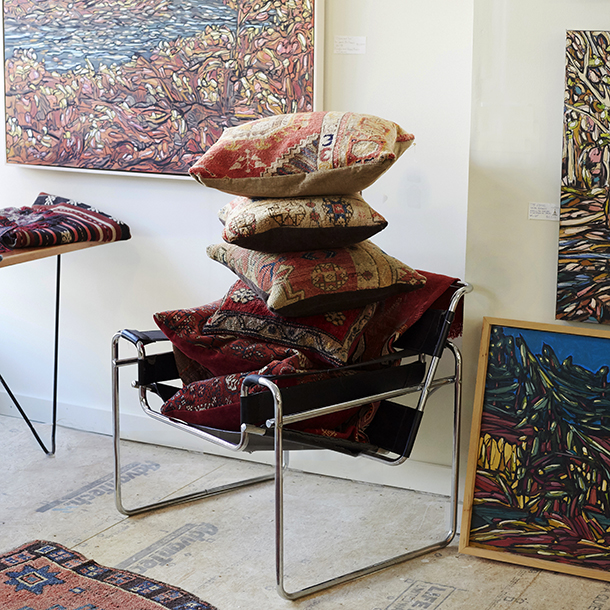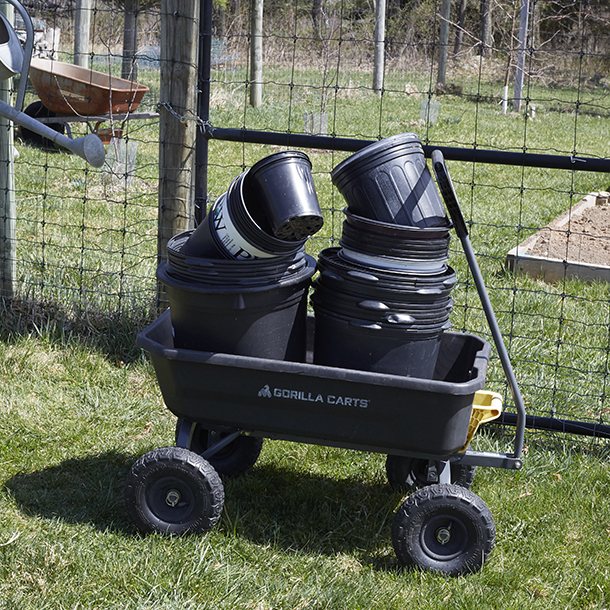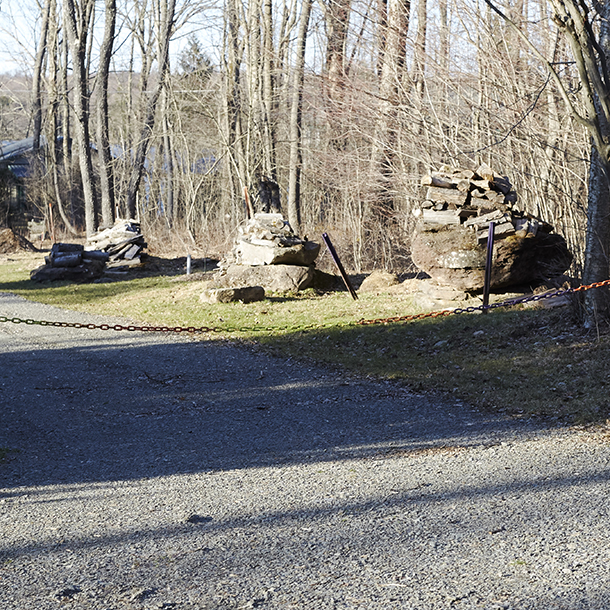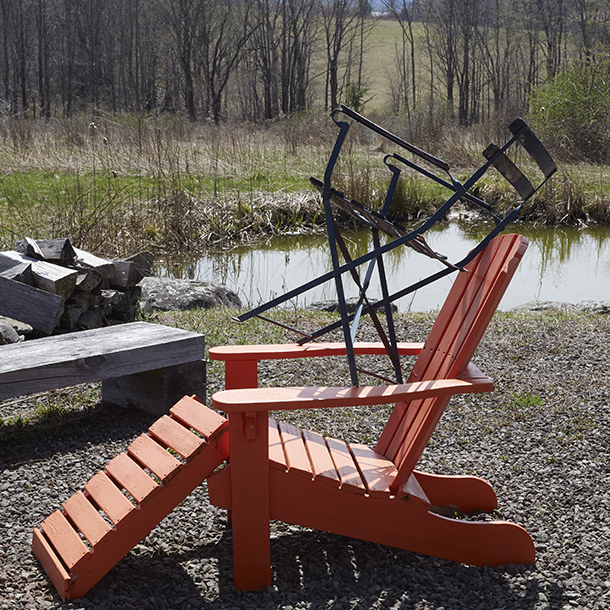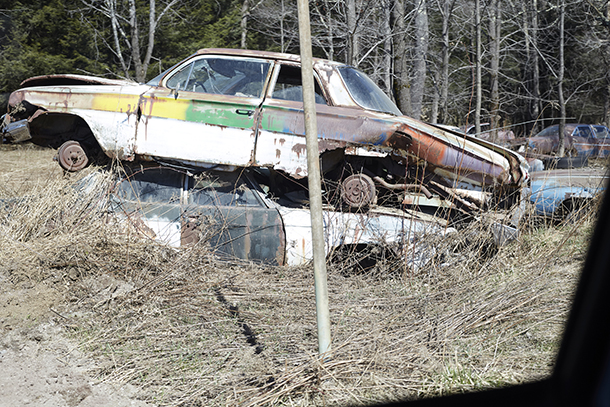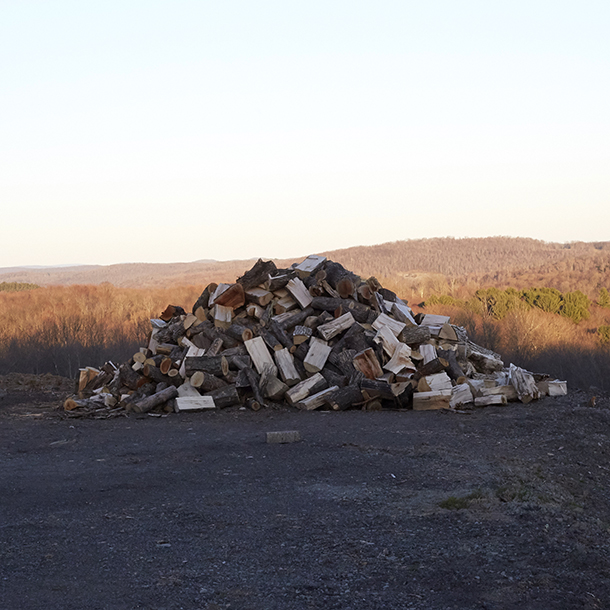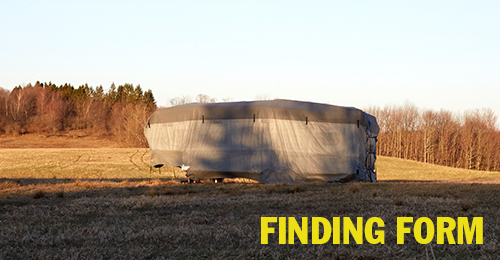
BOTH BY CHANCE AND WITH AN EYE FOR DISCOVERIES, BILL WESTMORELAND FINDS FORM, TEXTURE, AND DELIGHTFUL PLAYS OF SHADOW AND LIGHT
by Edward M. Gómez
brutjournal’s visual director, the photographer Bill Westmoreland (Instagram: @billwestmoreland), who is based in New York and also spends a lot of time in rural, northeastern Pennsylvania, tends to head out well armed — with a quick-draw digital camera, that is.
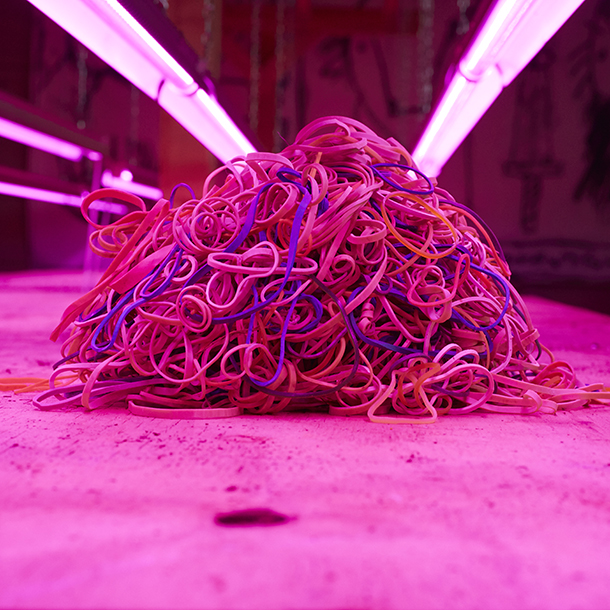
Bill has brought us many memorable images to help illustrate the magazine’s articles and essays, as well as groups of thematically related pictures that really have needed little or no accompanying descriptive or explanatory texts. The best, most powerful, most intriguing images often speak for themselves; their mystery, after all, is a large part of their irresistible allure.
Lately, as springtime’s thaw has given way to leafy trees and green fields, Bill has been out and about looking for eye-catching sculptural forms wherever they might pop up, both in nature and in human-made, human-occupied places where furniture, cars, toys, tools, and assorted junk are the stuff of everyday life, stuff that gets shoved or moved around here or there, often creating little more than mounds or zones of impenetrable clutter. Sometimes, though, exquisite, unexpected moments of space-time beauty and aleatory grace can emerge from such off-putting material chaos.
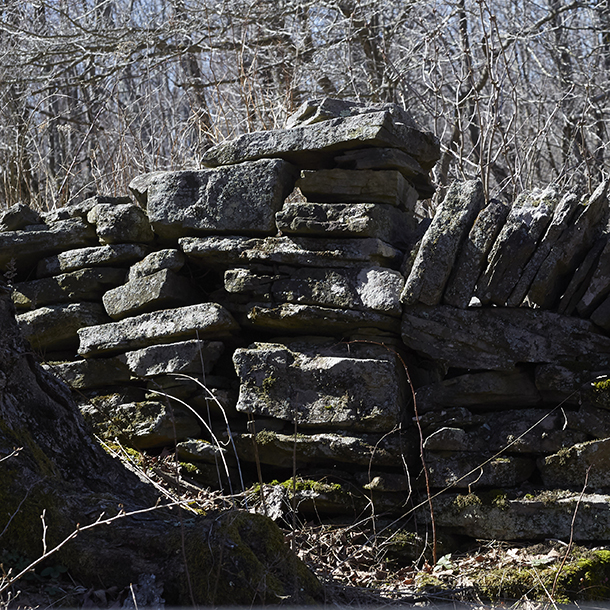
In the photo portfolio Bill shares with us here, a group of his recent rural discoveries appear, including examples of found form he spotted during a visit to the flower farm of the grower and floral artist Leslie LeFranc (Instagram: @touche_a_toutgardens), who, with her husband Maurice, owns and operates Touche-à-Tout Gardens, a ten-acre flower farm in northeastern Pennsylvania’s Upper Delaware River Valley Highlands. (See brutjournal’s November 2022 issue for an article about LeFranc’s collabrations with the photographer Kaitlyn Danielson (Instagram: @kaitlyndanielsonphoto).)
About his “ways of seeing,” to use a term popularized by the late British art historian John Berger (1926-2017) in a 1972 BBC television series and a related book, Bill shared the following observations. (Berger was an astute art critic as well as a novelist, poet, and painter.)
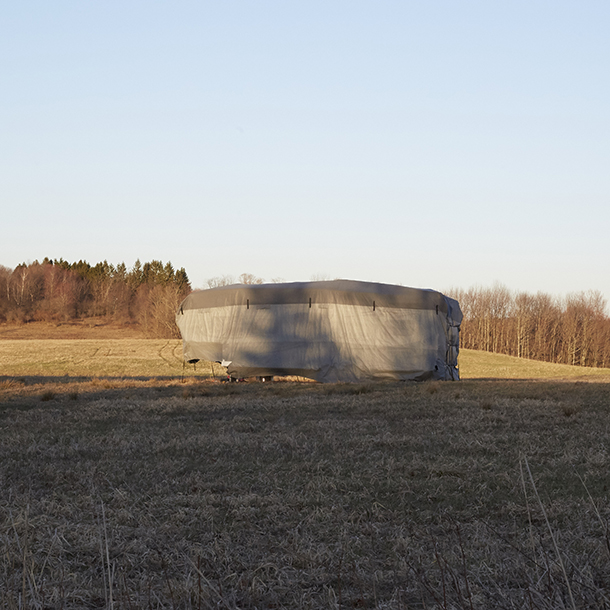
Bill noted, “When I’m photographing forms, I’m usually looking for the most exaggerated examples I can find. If I see a stack of wood that’s five feet high, creating an interesting shape, I’ll immediately start looking for a stack that’s 10 feet high and that might be slightly off-balance.”
That kind of exploring and investigation, Bill pointed out, “was very easy when I was at Leslie LeFranc’s farm photographing her preparation for the spring growing season. She had cleared out five or six flower beds that were filled with dead plants from the severe winter weather, creating several stacks that made interesting shapes and forms.”
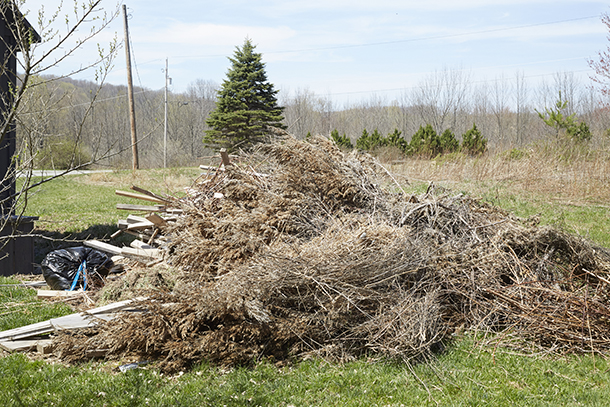
Bill added, “I also look for interesting angles and sometimes shoot from a very low angle to make a form seem taller than it actually is. Another challenge is trying to find a form that is in solitude in a large field, with nothing on either side for 50 to 100 feet. This allows me to focus more on the form itself and at the same time create a sense of minimalism.”
We share Bill’s indefatigable enthusiasm for finding aesthetic pleasure wherever it might turn up. After all, for those who head out into the world with inquisitive eyes wide open, it’s a matter of form.
[Scroll down to see more of Bill Westmoreland’s photos.]
